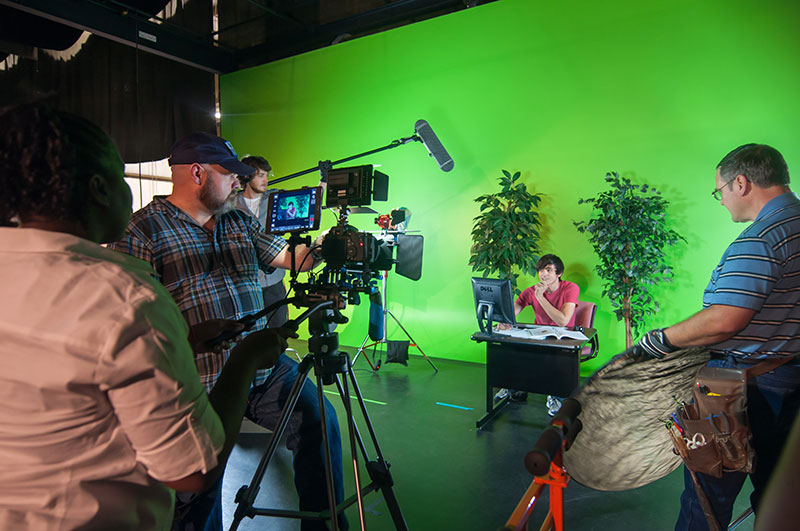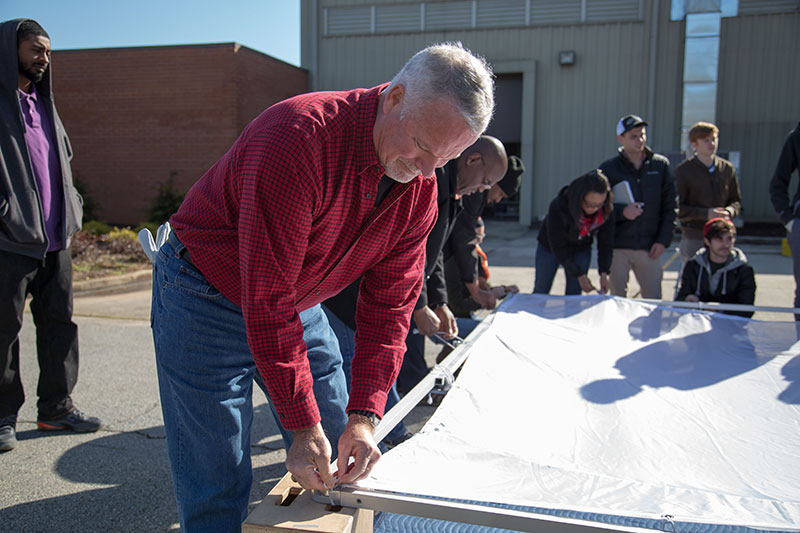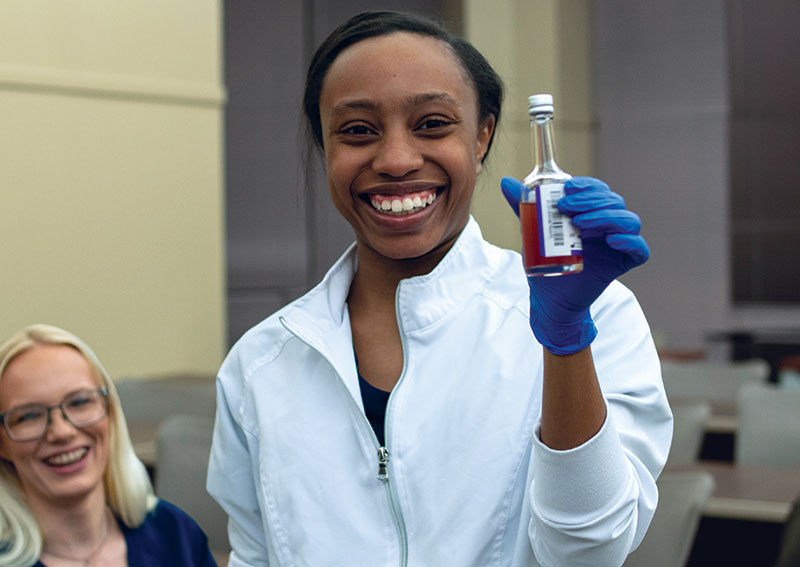On the Move
By Allison Salerno
At 22, Clayton Carte already is making a name for himself in local politics.

Share the Story on FacebookShare the Story on TwitterShare the Story via EmailShare the Story on LinkedIn
Winter 2020 | By Ruth E. Thaler-Carter
With a new executive director at the helm, Clayton State University’s Center for Continuing and Professional Education is poised to reach ambitious heights in its commitment to providing practical, applicable resources to nontraditional students seeking career advancement, retooling and retraining, or fulfillment through hobbies and personal interests.
Reginald Turner, Ph.D., joined Clayton State in January of 2019, bringing a unique range of experience to CaPE; through more than 25 years in higher education, he has been a college president, worked in student and academic affairs, served in a community college and promoted workforce economic development in the private sector.

“What’s unusual about my background is that I have experience in the traditional university and community college settings as well as in nonprofit and for-profit institutions and in business,” said Turner.
“That makes my approach to continuing education a lot different because I see the world from a different perspective, especially in terms of a collaborative approach. I can see how we can be of service to other departments in the university, as well as in the community. I’m always looking for ways we can create partnerships throughout the university.”
He is also continually on the lookout for how CaPE can join forces with local, regional, national and even international partners to craft offerings that will appeal to a wide range of potential students and their employers, both current and future.
“We are focused on three models in effecting a transformation,” Turner said of CaPE’s current approach. “One is academic: making sure what we offer is important and in good standing in our academic role. The second is business: running the department like a business because we are self-sustaining—we don’t receive any contributions from the university or the state. The third is community partnerships: working with employers to provide contract training and helping educate the population of potential students about the value of being trained or retrained.”
The third aspect may be most significant, Turner noted, as the fast pace of change in today’s technology and the workplace means “people have to constantly learn and expand their skills.”
Among CaPE’s new initiatives is the concept of “stackable credentials,” a trend aimed at helping students get work-related certificates or coursework and return for additional credits that “make continuing education even more valuable,” Turner said.

This approach is useful for people who find jobs they love that don’t necessarily match their degree fields and makes it easier to build their value to employers without undertaking lengthy new study programs.
“We also will offer digital badges with training in the skills employers are looking for,” Turner noted.
While Turner has ambitious plans for CaPE, he is also proud of its success so far.
In the past five years, CaPE has provided about 5,000 courses to more than 11,000 students in person and 1,100 students online in more than 26 states in addition to hiring 142 instructors, teachers and trainers.
Plans include expanding both online and hybrid offerings, Turner noted. CaPE earns its keep; the program has raised $5 million to date from student fees, conference services and managing requests to film movies on the campus.
“A lot of filming [with students in continuing education] is done on our campus, and it all runs through CaPE,” Turner said. For the future, “we’re looking to expand our funding through grants,” he noted.
The program serves not just Clayton County but also students and businesses in Henry and Fayette counties. “We are unique because we serve students from high school through 95 years old,” Turner said. He and his staff are also in discussion with universities in India about the possibility of bringing some of their students to the program for training on campus.
One aspect of CaPE that makes it successful and relevant to current workplace needs, Turner said, is that “continuing education is nimble. We are designed for, and very good at, being responsive to market needs. We have the ability to develop, write up new courses and hire providers for them in short order and at reasonable cost without a lot of lengthy bureaucracy. We can create our own course objectives and customize our offerings.”
That’s an invaluable attribute because in the world of work, and sometimes even in the area of personal interests, “you have to strike while it’s hot,” he said.
Levon (Lee) Alexander is a perfect example of an adult student who found CaPE to be the ideal fit for his personal goals. He had a fulfilling career in medical education and compliance until health issues demanded his retirement, which gave him a chance to indulge a long-time goal.

“Photography was a lifelong hobby and interest,” he said. “There were times when I wanted to shoot photos for myself, and once a friend had me take photos at his wedding in Jamaica.”
Alexander took two Continuing and Professional Education courses in digital photography with Kalika Wade that he found very helpful. “I’m basically self-taught in photography, and I knew from my career in education that you could always learn something new in life. I wanted to sharpen what I thought I knew and pick up additional skills,” he said.
The courses gave him insights into what he could have done better or differently in shooting events like his friend’s wedding, giving him greater satisfaction with the images he takes now. For Devante Johnson, CaPE created a path to a fulfilling new career.
He had gone straight from high school to working as a firefighter and in emergency medical services (EMS). Then he decided to study acting at the Alliance Theater in Atlanta before taking a voiceover class with Vince Bailey at Clayton State. Now, he does voiceover work through two agents, Voiceover LA and Premier Model & Talent.
“I definitely learned a lot about the business side, such as marketing and promotions, that helped me find work in voiceover,” Johnson said in a deep voice that sounds made for his preferred profession. “I learned the skills I needed to do the work. It’s an exciting career. Even when I’m working here (in Georgia), I never know where my voice will be heard.”
Johnson recommends CaPE for any field. “There’s so much importance to learning something new,” he said. “This program is a perfect way to get your feet wet [in a new career or hobby]. It’s a great jumping-off point.”
By Kelly Petty
On the fifth floor of downtown’s hipster hangout, Ponce City Market, is Mailchimp, a leading email marketing platform known as much for its services as its mammalian mascot.
By Allison Salerno
At 22, Clayton Carte already is making a name for himself in local politics.
By Kelly Petty
When a committee of faculty and staff came together in 1994 to create a time capsule containing historical items from the school’s 25 years since its inception . . .
By Adina Solomon
When you move you consume oxygen. When you move fast, your heart rate and blood pressure rises. A metabolic cart can help improve the cardiovascular system of heart patients and athletes alike.